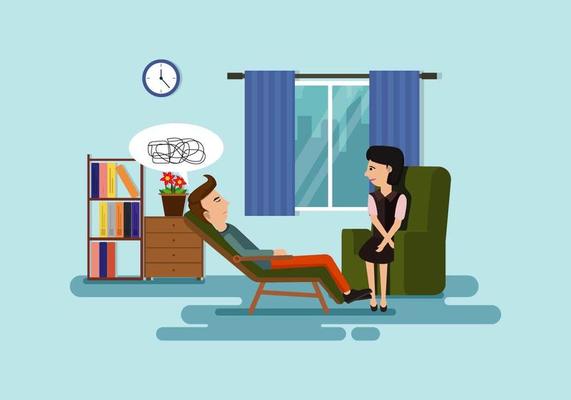Experience Lasting Change with the Best Psychologist in Delhi: Below's How
Experience Lasting Change with the Best Psychologist in Delhi: Below's How
Blog Article
Psych Treatment: A Comprehensive Guide to Results and strategies

Cognitive-Behavioral Therapy
Cognitive-Behavioral Treatment (CBT) is a widely made use of psychotherapeutic technique that focuses on identifying and changing useless thinking and behavior patterns. Developed in the 1960s by Aaron T. Beck, CBT integrates behavior and cognitive concepts to attend to different psychological health problems, including anxiety, anxiousness, and stress-related conditions. The property of CBT is that maladaptive thoughts add to emotional distress and maladaptive actions. By restructuring these thoughts, individuals can attain substantial enhancements in their psychological health and day-to-day performance.
CBT is characterized by its organized, ambitious nature. Treatment commonly includes a joint procedure between the therapist and client, where specific troubles are identified, and functional methods are created to address them. Strategies such as cognitive restructuring, direct exposure treatment, and skill-building workouts are commonly employed. Cognitive restructuring includes tough and altering adverse idea patterns, while direct exposure treatment intends to reduce concern and anxiety through steady direct exposure to feared things or circumstances.
Evidence-based study sustains the efficacy of CBT for a vast array of emotional disorders - Best Psychologist in Delhi. Its focus on skill procurement and self-help methods equips customers to proceed development separately after therapy wraps up. The versatility and efficiency of CBT have made it a keystone in modern psychotherapeutic method
Psychodynamic Techniques
Rooted in the early concepts of Sigmund Freud, psychodynamic approaches focus on checking out the subconscious mind and its influence on actions and emotions. These methods aim to reveal covert thoughts and feelings that may be driving maladaptive habits and emotional distress. Central to this method is the concept of internal conflict, often stemming from unsolved previous experiences, specifically those from childhood years.
Therapists utilizing psychodynamic methods use several essential approaches, including cost-free organization, where people are encouraged to speak freely to disclose unconscious product, and desire analysis, which interprets the concealed web content of desires. Furthermore, the expedition of transfer and countertransference dynamics within the restorative relationship is critical. These interactions can give understandings right into the patient's internal globe and relational patterns.
Psychodynamic treatment is generally longer-term compared to other modalities, using a thorough and deep understanding of the person's mind. Research study suggests that it can be specifically effective for intricate psychological wellness concerns, such as personality disorders and chronic depression. By fostering self-awareness and psychological insight, psychodynamic therapy looks for to bring subconscious material to consciousness, making it possible for people to accomplish lasting and meaningful change in their lives.
Humanistic Methods
Building on the foundations laid by psychodynamic strategies, humanistic strategies offer a distinctive perspective concentrated on private possible and self-actualization. Stemming in the mid-20th century, these methods focus on the fundamental goodness and growth potential of people, stressing an alternative sight of human experience. Key numbers such as Carl Rogers and Abraham Maslow have actually dramatically affected this healing strategy, which encompasses approaches like client-centered treatment and Gestalt therapy.
Client-centered treatment, developed by Rogers, plays a critical role in humanistic methods. It counts on the therapist offering an environment of unconditional positive regard, empathy, and congruence. This promotes a secure area for customers to discover their feelings and experiences without judgment, helping with self-discovery and personal growth. The therapist's function is more of a facilitator than an authority, encouraging clients to harness their inner resources for recovery.
Gestalt treatment, one more vital humanistic method, highlights existing minute understanding and the integration of mind and body. By concentrating on the "present moment," clients obtain higher insight right into their current feelings and actions. Methods such as role-playing and assisted visualization are frequently used to help customers obtain a deeper understanding of themselves, ultimately leading to improved self-awareness and fulfillment.
Integrative Therapies
Integrative treatments represent a synthesis of numerous healing methods customized to satisfy the special demands of each customer. This technique recognizes the complexity of human psychology and the complex nature of psychological health problems. By combining aspects from various colleges of psychiatric therapy-- such continue reading this as cognitive-behavioral therapy (CBT), psychodynamic therapy, and humanistic strategies-- integrative therapies provide an even more flexible and alternative therapy paradigm.
Practitioners of integrative therapy analyze each customer's specific requirements, signs, and personal history to develop a customized therapy plan. This customized approach boosts the potential for restorative success by resolving the source of emotional distress and promoting total well-being. Methods may consist of mindfulness workouts, cognitive restructuring, and emotional handling, each chosen to target various elements of the customer's problems.
Moreover, integrative treatments emphasize the restorative relationship, watching the client-therapist bond as a crucial part of efficient treatment. This partnership fosters a supportive setting where customers feel secure to discover and resolve their concerns. The flexibility of integrative treatments makes them ideal for a wide series of conditions, consisting of stress and anxiety, depression, injury, and interpersonal difficulties, consequently boosting their applicability and effectiveness in diverse clinical settings.

Gauging Therapy Results
Reviewing the effectiveness of psychiatric therapy is important for both clients and medical professionals to make certain that the treatment is yielding the desired results. To attain this, various approaches and devices are employed to gauge treatment results methodically. Standardized assessment instruments, such as the Beck Anxiety Stock (BDI) and the Generalized Stress And Anxiety Disorder 7 (GAD-7), supply measurable information on signs this contact form and symptom seriousness and modifications gradually.
In addition to standard devices, qualitative techniques like client self-reports and clinical meetings supply useful understandings right into the individual experiences and perceived progress of clients. Routinely scheduled evaluations, typically at the beginning, axis, and end of treatment, aid in tracking the trajectory of enhancement or identifying areas requiring adjustment.
Result dimension is not limited to sign reduction; it also encompasses functional improvements in every day life, such as much better social partnerships, raised work productivity, and improved overall wellness. Modern developments in electronic health have actually presented mobile apps and on the internet platforms that facilitate real-time monitoring and responses, better fine-tuning the analysis procedure.
Ultimately, a detailed strategy to measuring treatment outcomes makes sure that therapeutic treatments visite site work, reliable, and customized to satisfy the private needs of customers, consequently maximizing the overall healing experience.
Final Thought
Psychotherapy uses a complex range of techniques intended at resolving certain psychological wellness concerns and boosting general well-being. Cognitive-Behavioral Treatment and psychodynamic approaches target subconscious impacts and useless ideas, specifically. Humanistic strategies concentrate on individual growth and self-actualization, while integrative therapies incorporate multiple techniques for customized treatment strategies. Evaluating treatment outcomes via qualitative methods and standard assessments ensures a thorough understanding of efficiency, ultimately guiding customers towards sustaining psychological wellness renovations.
From the organized strategy of Cognitive-Behavioral Treatment (CBT) to the deep expedition of the unconscious in psychodynamic treatment, each method brings unique benefits. Its focus on ability procurement and self-help strategies equips customers to proceed progress independently after treatment wraps up (Best Psychologist in Delhi). Key numbers such as Carl Rogers and Abraham Maslow have actually considerably influenced this restorative method, which includes approaches like client-centered therapy and Gestalt treatment

Report this page